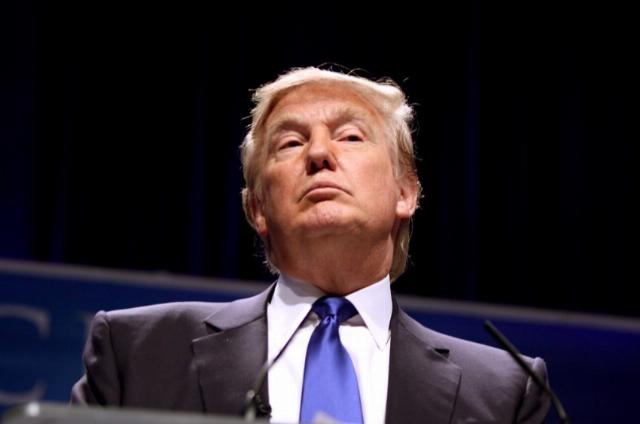Is Trump a liar?
All liberals agree that Donald Trump is a liar, but there is some disagreement among them as to precisely what kind of liar he is. Many say he is a pathological liar. Many others disagree; they hold that he is a congenital liar.
Though I voted for Trump in 2020 and plan to vote for him in 2024, I have no wish to spend any time or energy defending Trump’s reputation as a truth-teller. If liberals wish to call him a liar, well, that’s between him and them. Leave me out of it.
If, however, you were to point a loaded gun at my head and to order me, while threatening to shoot me if I refuse to obey your order, to construct an argument refuting the accusation that Trump is a liar, let alone a pathological or congenital liar, here’s what I would say.
First, telling a lie is not simply a matter of making a false statement. No, a lie is a false statement made with the intention of deceiving one’s auditor. If a “lie” is told without the intention of deceiving, it is no lie. If I were to tell you, for instance, that I used to own Buckingham Palace until I lost it in game of poker with Queen Elizabeth II, this would not count as a lie. Many of Trump’s false statements are of this kind: so obviously untrue that they deceive nobody.
Second, many of Trump’s false statements are semi-true in that they are exaggerations of true statements. Trump has a great love of superlatives. Instead of “good,” he prefers “best.” Instead of “bad,” he prefers “worst.” And so on. He exaggerates in other ways. For instance, he claims that he did more for blacks than any president since Lincoln (forgetting FDR and LBJ), and he asserts that Joe Biden is the worst president in U.S. history (forgetting James Buchanan), and he tells us that he draws bigger crowds that Martin Luther King ever drew. These superlatives and exaggerations are not genuine lies. They are a poetic way of saying whatever it is that he really means to say. Instead of saying “X is bad” (a literally true statement), Trump prefers “X is the worst thing that has ever happened in the history of the human race.”
3. Trump has an unusual view of the purpose of a declarative sentence. Most people think the purpose of a declarative sentence is to state a fact — e.g., “The cat is lying on the mat” or “I’d like to have a glass of lemonade” or “Charlemagne was crowned emperor on Christmas Day in the year 800.” But Trump believes that declarative sentences can legitimately be used for many purposes besides stating facts. They can be used to entertain, to insult, to excite one’s friend, to irritate one’s enemY, to raise money, to encourage friends, to depress foes, and to do a hundred other things. And if, in doing all these other things, factual truth sometimes gets trampled in the dust, well, that just goes to show the limits of the English language, which often doesn’t allow us to perform one linguistic function without doing violence to another.
There. I have obeyed your command, however unwillingly. Please take the gun away from my head.

Image: Gage Skidmore via Flickr, CC BY-SA 2.0.
FOLLOW US ON
Recent Articles
- New York Greenlights Quarantine Camps
- Reality Check for Democrats
- A MAGA Siege of the Democrats’ Deep State
- Why Incel and 4B Culture Matter
- Defending Donald Trump: A Response to Jeffrey Goldberg and The Atlantic on the Signal Leak
- Are Judges Complicit in Lawfare?
- Deep Dive: The Signal Chat Leak
- Mark Steyn’s Reversal of Fortune
- Where We Need Musk’s Chainsaw the Most
- Trump Is Not Destroying the Constitution, but Restoring It
Blog Posts
- Nasty Venezuelan migrant who flashed taxpayer dollars and urged squatting, gets thrown out
- In Pennsylvania, are Democrats stealing votes again?
- Knife control comes to the U.K.: Prime Minister Starmer bans Ninja swords
- This Tuesday, Wisconsonites must vote for Brad Schimel for the State Supreme Court
- Was Vietnam worth the cost?
- Democrats should get a clue from the Palestinians who are now marching against Hamas
- Trump takes on Fauxahontas's brainchild
- Consumer Sentiment Survey: This too shall pass
- If they only had knife control....
- Newsom and Walz struggle to appear normal
- Anti-Trump lawfare: yes, it's a conspiracy
- Criminal attack? You're on your own.
- Amid disaster, watch Bangkok clean up and rebuild
- Katherine Maher shoots herself, and NPR, in the foot
- A visit to DOGE






